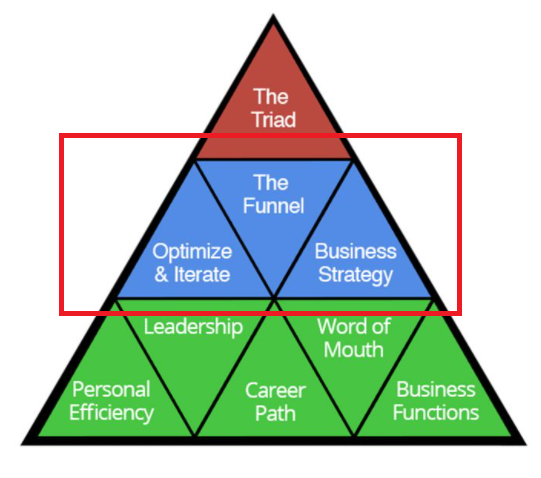Picture this:
A project manager asks, “What’s taking so long on Project A?” only to hear, “I’m swamped with Project B.”
Then, when probing about delays on Project B, the response shifts to, “I’m overloaded with Project A.”
You’d think it’s a comedy sketch, yet it’s a reality for countless teams, revealing a deeper issue within our approach to managing tasks and responsibilities.
To get to the heart of efficiency, it’s not just about listing how many projects are in motion; it’s about pinpointing how many get actually completed. I always say, check the weekly status reports of your team. Not just what’s touched, or planned, but what’s truly done.
This reveals more than just progress; it shows how well a team can navigate through their workload without getting caught in a loop of excuses.
A common saying in corporate land is only hiring “A Players”. These being effective workers or managers competent enough to complete tasks on time.
Now, let’s talk about the makeup of most teams—an array of B and C players. Where there are plenty of hands on deck but not much to show for it.
It’s easy to get lost in the noise of why things aren’t done. Over the years, I’ve cataloged every excuse in the book, but the real breakthrough comes when you manage to sidestep this smokescreen of reliability dodging.
While some might argue that A, B, and C players are subjective, there’s a very easy way to tell who fits into which category. It’s called MAA.

Our 9 triangles framework is a great example on how to be efficient by following standard processes.
This brings us to the crux of the issue—the missing MAA cycles: Metrics, Analysis, and Action. Without these, there’s no clear communication, no iteration on strategies, no proper delegation of tasks. It’s like trying to run a race with your shoelaces tied together.
For Example
Metrics: Our Facebook ads campaigns aren’t profitable.
Analysis: More testing and iteration should be done following Dollar a Day.
Action: We will test and Iterate this week with new ads.
In a team of true A players – the “Action” at the end is the to-do list for that week. So that for the next MAA cycle, there’s new action to report and further optimize from.
In a team of B and C players it becomes a game of hot potato and responsibility dodging. After all, why would you, as a VA, take responsibility and initiative when you can simply pawn it off to someone else?
Especially if you’re getting paid regardless of performance.
The End Result?
Nothing get’s done, clients get angry, and refunds get issued – all for tasks would take literal minutes to complete.
It’s not just that the B and C players aren’t doing work – it’s that they’re also burdening the A players with more work. This starts a toxic cycle of the A players being punished for being effective.
It’s like putting 100 units of effort into chasing someone down for a task which takes 3 units of effort to complete. All-the-while paying them for the privilege.
Does This Sound Sustainable?
Many of these issues stem from self-inflicted wounds, where underlying fears—often unrecognized—build up and become formidable barriers to success. I’ve written extensively about how these fears can sabotage even the most promising campaigns.
We need to cut through the nonsense.
How Can You Address These Issues Before It Permanently Disrupts Your Business?
We teach others the importance of DDD which is Do, Delegate, Delete. This same method is how I manage over 1,000 daily emails.

For example – a client is onboarded and we need access to their Facebook page.
According to your role you would:
DO: Schedule a meeting with the client, get access to their assets, and begin implementation.
DELEGATE: Only if you’re unable to accomplish the task (not the case for most team members), tap in someone else to do it.
Delete: If it’s not relevant to you and you’re not on the project – delete and move on to your work you can do.
The problem comes when B and C players CAN complete a task, but choose to pawn it off to someone else.
Or worse – simply ignore the issue in the hope it get’s taken up by a competent A player.
Here’s the Good News
A players, the kind I strive to cultivate and work alongside, get past these hurdles swiftly to pave the way to success. They understand that you can either make a million dollars or make a million excuses—but you certainly can’t do both.
To avoid the #1 VA Mistake (which is to not understand the goals of what we’re attempting to do), it simply requires you practice MAA for yourself.
For those looking to elevate their game, remember, it’s about fostering a culture where communication is clear, iteration is continuous, and delegation is effective.
Let’s move past the excuses, address our fears, and drive our projects to the finish line. That’s how we succeed in this fast-paced world.
